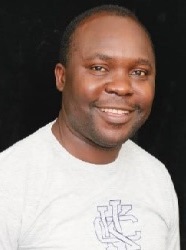Dr Job Mwanza talks about his experience working in sexual and reproductive health, and working with the RCOG to advocate for access to safe abortion in Zambia.
During my 11 years’ experience in clinical practice, sexual and reproductive health has always been close to my heart. As a senior resident medical officer, I undertook some rural experience in the central province of Zambia. While there, I supported a number of young girls and women with unwanted pregnancies who were seeking access to abortions. Almost all of these women had firstly gone to a traditional healer for the abortion, which had inevitably failed, and had put some of them in vulnerable positions.
On one occasion a 17-year-old girl was brought in on a stretcher; the bedding was soaked in blood, and she was in and out of consciousness. It later developed that she had missed two periods, and had not told anyone at home about her suspected pregnancy out of fear that her parents would stop sponsoring her for school. She and her boyfriend of two years had been using condoms every time they had sex but the girl suspects that the condom may have split at some point. She was too scared to go to a clinic, as she thought that accessing an abortion was illegal. Instead, she secretly sought out a traditional healer.
The healer that the girl saw gave her some sticks to insert into her cervix, which they claimed would abort the pregnancy. She did as instructed, resulting in severe bleeding and the loss of consciousness. Her mother found her in a pool of blood.
An ox cart was arranged to transport her to the nearest hospital, 35 km away. Luckily she arrived when I was there and we quickly rushed her to the emergency room and resuscitated her. During examination, a stick was found in the vagina. It was at this point that I realised the girl had accessed an unsafe abortion which had failed, and put her in a life threatening position.
Situations like this are very common in Zambia, as those who have unwanted or crisis pregnancies fear that they will be reported to the police for accessing an abortion. In Zambia it is legal to access an abortion where the pregnancy means a risk to the physical or mental health of the pregnant woman or risk of injury to the physical or mental health of the pregnant woman’s existing children; if there is substantial risk that the child would be born with physical or mental anomalies; or on socio-economic grounds – a pregnant woman’s social and economic environment will be taken into account as well as her age. However, few women know that they have the right to an abortion, or where to access safe abortion care. The young girl I described, who had so much potential in life, could have been another of the countless women within Zambia to die due to unsafe abortions. This one woman did survive, but with a morbidity which may affect her future fertility.
The maternal mortality rate (MMR) is high in Zambia at 278 per 100,000 live births (ZDHS 2018) with almost 10 % of the deaths contributed to by unsafe abortions. The Zambia National Health Strategic Plan (NHSP 2017-21) target is to reduce MMR to less than 100 per 100,000 live births by 2030.
My thesis was on the use of long-acting reversible contraceptives to reduce the maternal mortality rate in Sub-Saharan Africa. It is during my studies in the UK that I interacted with a team from the RCOG’s Leading Safe Choices initiative that I shared the burden Zambia was experiencing in maternal health. The RCOG supported the adaptation of best practice papers (BPP) for Zambia in comprehensive abortion care (CAC) and post-partum family planning (PPFP). A training programme, including the teaching of local trainers who could then teach essential safe abortion skills to other providers was also developed. These best practice papers are being used in some hospitals by doctors and mid-level providers from two districts where the trainers were drawn from. These have supplemented the existing efforts of the Ministry of Health to improve access to safe abortion and quality management of abortions, and the prevention of unwanted pregnancies.
To further improve access to safe abortions and the prevention of unwanted pregnancies through the use of effective PPFP methods, trainings need to be rolled out to other districts, especially the rural areas to ensure that trained providers are available throughout the country.
Support from partners like the RCOG to give all people the option of safe access to abortion is an important part of our commitment to decrease maternal mortality rates. Giving women the power to decide when to have a child or how to safely manage an unwanted pregnancy, will help Zambia improve maternal health and achieve the UN’s sustainable development goal to improve access to good health and wellbeing for all (SDG 3) by 2030.

Notes
- The RCOG is committed to promoting access to sexual and reproductive health and rights, including access to safe abortion, globally. Through the Making Abortion Safe programme, the RCOG is working with Sexual and Reproductive Health and Rights (SRHR) Champions from Nigeria, Rwanda, Sierra Leone, Sudan and Zimbabwe, to address the barriers to safe abortion and post-abortion care.
- Sign up for updates from the Making Abortion Safe programme.
- Read the RCOG and FSRH’s key messages on safe abortion.
- To contact the RCOG press office call +44 (0)7986 183167 or email pressoffice@rcog.org.uk.
